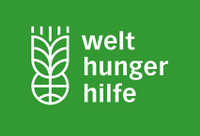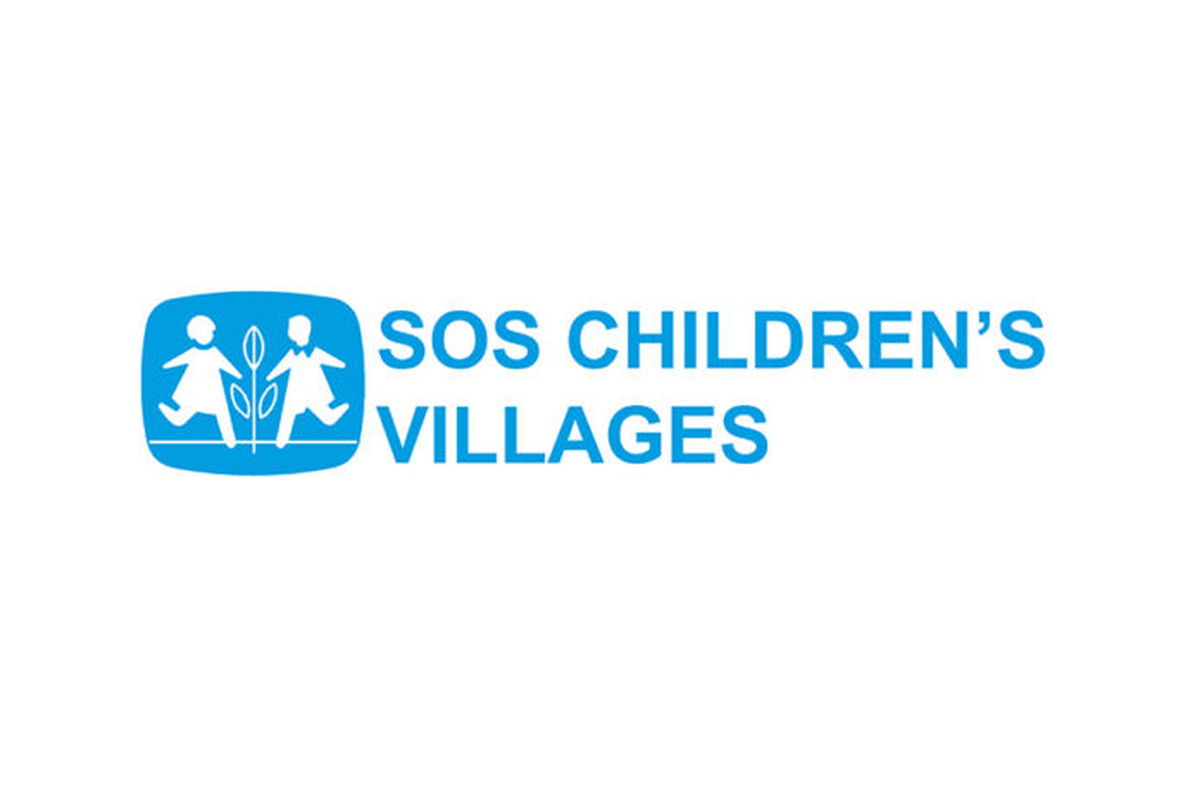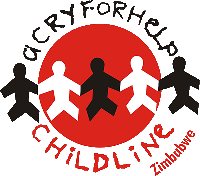Consultant: Baseline Study on Water Service Delivery Models
Consultancy, Research Jobs
- Welthungerhilfe
- Expires 10 Feb 2023
- Bulawayo
- Internship
Job Description
Welthungerhilfe is one of the largest German non-governmental organisations in development co- operation and emergency relief. Primarily in co-operation with local partner organisations, our task is to contribute to the improvement in nutritional and income base for the low-income populations in Africa, Asia and Latin America. Welthungerhilfe has been implementing projects in Zimbabwe since 1980. Sector focus is on Water Sanitation and Hygiene, Food and Nutrition Security, Livelihoods and when necessary, Emergency Response.
Welthungerhilfe is seeking for a Consultant for Baseline Study on Water Service Delivery Models. Please kindly refer to the Terms of Reference below for more information on this advert
Study on the Challenges and Strengths of Community-Based Management for Rural Water Supply Service Provision in Zimbabwe’s Mount Darwin and Chegutu Districts
Terms of Reference
Study Background
Community-based management (CBM) has been an enduring strategy for operationalising participatory development in the rural water supply sector in Zimbabwe and across Sub-Saharan Africa. CBM originated from the participatory agenda of the first UN ‘Water Decade’ in the face of disillusionment with top-down approaches. In the 1990s, the CBM model gained impetus; community management coupled with a stronger focus on user financial contributions was a cornerstone of first the 1990 New Delhi Statement and the influential Dublin Statement on Water and Sustainable Development (1992). As a result of these developments, among other drivers, CBM became a central tenet of policy and practitioner discourses on rural water, sanitation and hygiene service provision in developmental contexts.
In Zimbabwe, CBM is guided by the CBM manual of June 2008, which states objectives and stipulates principles and requirements for successfully implementing CBM. It outlines CBM as an approach in which communities take the final decision in all aspects of the planning, implementation, monitoring and evaluation of water supply activities. However, as is the case across Sub-Saharan Africa, CBM in Zimbabwe faces many pressing challenges, which are illustrated by the high non-functionality rate of rural water supply infrastructure. Within this context, Welthungerhilfe Zimbabwe and partners are commissioning a study on the challenges and strengths of CBM for rural water supply service provision in Zimbabwe’s Mount Darwin and Chegutu Districts. The findings from this study will be used to directly inform the development of a strengthened variation of CBM that will be piloted in the two districts in collaboration with the Government of Zimbabwe.
Welthungerhilfe Zimbabwe and partners have issued a separate Terms of Reference for an assignment focused on identifying the main motivating and demotivating factors as well as enablers and barriers causing open-defecation-free retention and slippage in Zimbabwe’s Mount Darwin and Chegutu districts. Consultants or consultancies with appropriate experience and capacity are invited to submit joint technical and financial proposals for these assignments where they feel that this will result in cost efficiencies and, in turn, the delivery of higher-quality outputs.
Duties and Responsibilities
Study Objectives
The study has three overarching objectives:
I. Identify the extent to which CBM is functioning ‘effectively’ for rural water supply service provision in Mount Darwin and Chegutu districts and specify key strengths and weaknesses in its application across the two districts.
II. Propose a series of recommendations regarding key adaptions to the current CBM approach that Welthungerhilfe Zimbabwe and partners should pilot in collaboration with the Government of Zimbabwe.
III. Work with Welthungerhilfe Zimbabwe and partners to design a refined variation of CBM that addresses key challenges identified by the study and can be piloted by Welthungerhilfe Zimbabwe and partners in collaboration with the Government of Zimbabwe.
Study Scope
The study is to be bounded in the following ways:
I. Geographic Focus. The assignment is to focus on Zimbabwe’s Mount Darwin and Chegutu districts. Primary data collection should be limited to these districts; however, the consultant or consultancy is invited to draw upon secondary resources from beyond these districts to provide a broader context to the study’s findings.
II. Management Arrangement. For the purposes of this study, it is recommended that the following definition of management arrangement is utilised: The set-up for water services, which goes beyond an individual service provider and relates to the adoption and performance of a series of practices at three levels: (i) the service provider; (ii) the service authority and (iii) the national level. The study will focus on CBM and is not expected to consider water supply services provided through alternative management arrangements.
III. Demographic Setting. The study will focus on rural communities; however, this should cover rural service centres (rural business centres) as well as more dispersed rural settings.
IV. Technology. The study should include hand pumps (i.e., bush pumps) as well as piped water supply schemes. It is not envisioned that the study will include technologies more associated with self-supply, such as protected family wells and rope and washer pumps.
V. Actors. The delivery of safe and reliable water supply services is dependent on a wide range of actors at the household, service provider, district, provincial, and national levels. While water committees are expected to be a core focus of the study, the consultant or consultancy is expected to engage with a wider set of actors across the above levels.
Study Methodology
The consultant or consultancy is expected to propose a detailed methodology for achieving the study objectives. This should include (but does not need to be limited to):
I. Desk review and consultative meetings.
II. Primary data collection at the household, service provider, and district levels.
The consultant or consultancy is expected to develop an analytical framework or utilise / adapt an existing framework to guide the application of the specified methodology. This analytical framework should include (but does not need to be limited to) the following dimensions:
I. Service Levels. The extent to which the users of the water supply facility are provided with a water supply service in-line with sector benchmarks, including sector benchmarks concerning reliability and water quality dimensions.
II. Institutional. The extent to which institutional frameworks are in-place at the district level and service providers are constituted in-line with national guidelines.
III. Financial. The extent to which service providers have enough sufficient financial resources to sustain desired service levels, whether there are mechanisms to support service providers in meeting these costs, and if local government has sufficient financial resources to fulfil their functions.
IV. Managerial. The extent to which local government is performing key support functions such as monitoring and overseeing service providers, as well as the extent of the human capacity of local government and the support that local government receives from the higher levels of government.
V. Technical. The extent to which key operations and maintenance functions are performed on the water supply facility, spare parts are accessible, and service providers (and other actors) have the requisite capacity to perform repairs.
VI. Environmental. The extent to which the water supply facility and natural resources are managed in a manner that adapts to and mitigates the impact of environmental changes and events on water supply service provision.
For each of the above, the level of performance and key strengths and weaknesses will need to be captured at a range of levels (i.e., household, service provider, district, provincial and national). The WASH Sustainability Index Tool provides an example of a Tool that investigates several of these elements; it can be accessed here:
http://washplus.org/rotary-usaid.html#:~:text=Developed%20with%20support%20from%20the,of%20qualitative%20and%20quantitative%20indicators.
Study Outputs
The consultant or consultancy is required to produce the following outputs.
I. Deliverable One: Inception Report. Develop an inception report covering at least the following aspects:
a. Management Arrangement Mapping. Provide an overview of CBM in Zimbabwe, noting any variations between different forms of CBM that may exist.
b. Assessment Framework. Develop an assessment tool for assessing the effectiveness and sustainability of CBM.
c. Primary Data Collection. Provide an overview of proposed primary data collection activities, including detailed information on the field visits and stakeholder consultations to be performed and the data collection tools to be employed.
d. Annotated Final Report Template. Provide a template for the final report specifying key information and areas of analysis to be included in each section.
II. Deliverable Two: Inception workshop Convene an inception workshop to update Welthungerhilfe Zimbabwe and partners (and other relevant stakeholders) on activities performed during the inception period and discuss the feedback on the inception report.
III. Deliverable Three: Final Report. Develop a final report providing the following:
a. Status of rural water in Zimbabwe’s Mount Darwin and Chegutu districts.
b. An overview of the extent to which CBM is functioning ‘effectively’ for rural water supply service provision in Mount Darwin and Chegutu districts and key strengths and weaknesses in its application across the two districts.
c. A series of recommendations regarding key adaptions to the current CBM approach that could be piloted by Welthungerhilfe Zimbabwe and partners.
IV. Deliverable Four: Results Workshop. Convene a one-day workshop to discuss the findings and recommendations of the study with a group (agreed with client) of stakeholders and contributors.
V. Deliverable Five: Data Transfer. Transfer all data and information gathered during the assignment to Welthungerhilfe Zimbabwe to be shared with Government and other interested parties.
Level of Effort, Timeframes, and Payment Schedule
An estimated 20 consultancy days are required for the assignment, and the assignment should be completed within a maximum of three months.
The Table below presents envisioned dates for completing key milestones. The payment schedule linked to each key milestones is also specified.
Contract Signature. 20.02.2023 None.
Delivery of online inception meeting and client acceptance of inception report of a satisfactory standard (Deliverables One and Two). 24.02.2023 25%
Delivery of results workshop and client acceptance of final report to a satisfactory standard (Deliverables Three and Four. 24.03.2023 50%
Data transfer. 30.03.2023 25%
All deliverables will have to meet the expected quality and standards as assessed by the supervisor of the assignment. Should the consultant or consultancy fail to deliver as per expected quality and standards, Welthungerhilfe Zimbabwe and partners reserve the right to amend the payouts accordingly or to delay them until satisfactory deliverables have been submitted.
The selected individual consultant or consultancy will work under the strategic guidance of the WASH Systems Strengthening Head of Project, and the consultant or consultancy is expected to work closely with WASH Systems Strengthening partner managers. The consultant or consultancy will be responsible for ensuring that the consultancy is undertaken as described in these terms of reference and in their proposal. The consultant should meet deadlines and ensure the quality of all products and deliverables.
Proposal Contents and Procedure For Submission
Qualified consultants or consultancies are invited to submit a proposal for this assignment. The proposal should, at a minimum, include the following:
• Technical Approach. The consultant should provide a description and timeline of the planned technical approach, not to exceed ten pages.
• Consultancy Experience. The relevant experience of the consultant or consultancy, not to exceed three pages. CVs of the proposed consultant or team of consultants should also be included, highlighting the experience requested below.
• Financial Proposal. In a separate, clearly marked document, the consultant or consultancy should present a financial proposal detailing gross costs for undertaking the assignment, including operating expenses and applicable taxes.
• Questions on the assignment should be submitted to tendai.tendere@welthungerhilfe.de and CC to admin@mvuramanzi.co.zw, bloodwell@mvuramanzi.co.zw, bjmuhoma@gmail.com, Shadreck.Kundishora@welthungerhilfe.de , priscilla.majongwe@welthungerhilfe.de
• Deadline for submitting questions: by 1700 hrs on 03/02/2023 and responses will be given on a case-by-case basis.
Qualifications and Experience
It is expected that the consultant or consultancy have proven experience in public policy analysis and development, public sector finance/budgeting, local governance, sector performance monitoring, strategic planning, and a detailed understanding of Zimbabwe’s WASH Sector. The consultant or consultancy is, therefore, expected to have diverse skills to meet the expectations of the assignment. Additional desired attributes include the following:
A Master’s or higher degree(s) in a relevant technical or management discipline.
A minimum of 10 years’ experience in undertaking similar analytical work (e.g., strategy, policy, capacity development and reviews in a relevant discipline or sector).
Experience facilitating high-level multi-stakeholder dialogue focused on government-based (both central and local government) transformations for basic service delivery with or without the assistance/participation of development partners.
International or Regional experience is an added advantage.
Proven skills in preparing and communicating high-quality documents and reports for policy advocacy and lobbying.
Excellent English report writing and communication skills.
A strong commitment to delivering timely and high-quality results (i.e. evidence of similar work).
How to Apply
During the application process, WHH will not charge any fee nor will it require any payment for an application to be considered. WHH is an equal opportunity employer and employs personnel without regard to race, place of origin, colour, ethnic origin, language, creed, religion, gender, sexual orientation, age, marital status and or physical handicap: Persons with disability are encouraged to apply:
Interested candidates should submit proposals via email to: recruitment.zimbabwe@welthungerhilfe.de indicating the position in the subject line.




